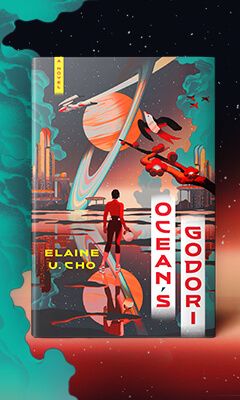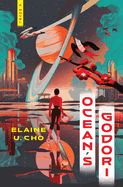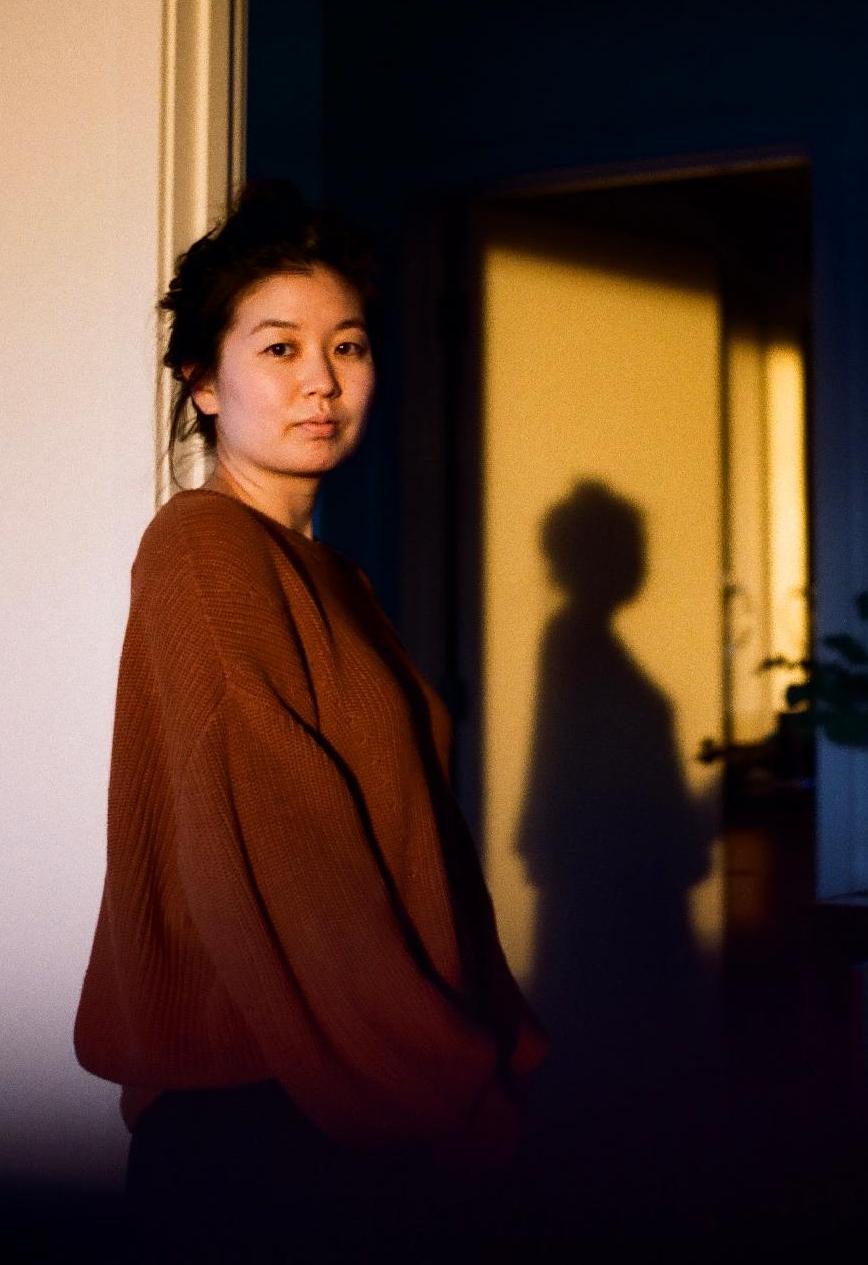Ocean's Godori
by Elaine U. Cho
The first undeniable reaction to Elaine U. Cho's debut novel, Ocean's Godori, is to its cinematic energy, immediately underscored on the opening page with telling references like "screen," "freeze-frame," and "ogle the actress." What follows is a propulsive, twisty-turny sci-fi adventure: chasing the bad guys (but what if they're the good guys?), saving lives while needing to wound and kill a few here and there, and maybe a long-shot at falling in love.
Cho's brave new world is dominated by the Alliance, a united Korea that leads the solar system. Ocean Yoon is possibly the Alliance's best pilot (ever). But she's been demoted ever since her involvement in the Hadouken incident: although Ocean took out marauding raiders and prevented the loss of one of their own, the Hadouken's captain nevertheless downgraded Ocean "for insubordination and reckless behavior." Alas, (re)actions that some might laud as courageous have made Ocean a bit of a pariah. For the last five years, she's been relegated to piloting the Ohneul, a Class 4 vehicle way below her capabilities, as the ship's XO. Still, she's managed to build a few relationships on board--if not exactly friendships, then certainly mutual respect and admiration shared with her fellow crew members. The arrival of a mysterious new medic, Haven Sasani, is about to interrupt the Ohneul's usual rhythms, and saving Ocean's life not long after meeting is quite the way to get--and hold--her attention.
Close bonds, though, are challenging for Ocean. Although she's Korean-born to a family of generations of haenyeo--"fabled women divers of Jejudo, mermaids of Korea"--Ocean wasn't welcomed into their aquatic clan. She was sent at age eight to the exclusive Savoir-Faire training ground for the next generation of Diplomats, but dropped out a year before graduation, following a tragedy that involved the loss of her beloved older brother. All her intimate relationships have been rather short-lived, the most recent imploding at a Korean BBQ gathering where she confronted her boyfriend and his lover with "How long have you two been sleeping together?"--then realized that she doesn't care.
For Ocean, the connection that matters most is with Teo Anand, second son of the eponymous Anand Tech empire's founding family, who are both revered and reviled by the public. Teo's just the spare; his heir-presumptive older brother, Declan, commands all the respect and power Teo eschews. Ocean and Teo might seem an odd pair, but they take every chance to share snacks--and secrets--when on land. And then a comatose Teo arrives on the Ohneul in an escape pod, needing refuge. When he wakes, he'll be the solar system's most wanted criminal, accused of murdering his entire family. With Teo on board, the Ohneul immediately becomes everyone's primary target. Ocean and the motley crew will need to figure out how to keep Teo--and themselves--alive, long enough to prove his innocence.
Cho, who is U.S.-born of Korean heritage, clearly derives immense pride in her background. With obvious cultural fluency, she expertly integrates Hallyu--the Korean Wave, which refers to the ongoing global popularity of South Korean culture including K-pop, K-dramas, and cuisine--throughout. Cho's title is the first indication: Godori, also known as hwatu, is a Korean card game that relies on both luck and strategic prowess, revealing the title to be an ideal metaphor for the narrative it cleverly, concisely encapsulates. Food, too, is seamlessly, delectably featured, from gochujang to ddeokbokki to banana milk. Confidence in Hallyu's staying power allows Cho to integrate Korean words--Ohneul (today), odeng (fish cakes), Daltokki (moon rabbit)--and concepts--hakwon (cram school), noonchi (something akin to empathic discretion)--without immediate, obvious translation. For inquisitive readers, however, Cho appends "Maggie's Glossary of Alliance Parlance" at book's end. Maggie is one of Ocean's crewmates; Cho delightfully infuses her voice with both insight and charm, as Maggie begins with a comical disclaimer that points at Ocean: "I have gotten all hangeul spellchecked by Ocean Yoon, so if you have a problem with it, you can take it up with her."
Indeed, Cho's use of Hallyu overtones has the cleverly thought-provoking effect of mirroring for readers Ocean's usual sense of being an outsider. Despite Ocean's Korean ethnicity, her formative years of Sav-Faire training have made her awkward in the society into which she was born. The Ohneul's newbie crewmate, Haven Sasani, is also an obvious outsider as a Mortemian, further alienated as the child of estranged parents from two different planets. While hopping the galaxy, Cho nimbly plumbs that timeless challenge: the search for belonging in a world of shifting borders and (lower-case) alliances. Beneath her inviting, absorbing writing are interrogating levels of introspection--confronting what-ifs, choices, and consequences. Cho showcases a narrative agility, rare in debut authors, dexterously providing various paths of engagement: audiences can choose to quickly consume Ocean's Godori as pop entertainment; others might respond more deeply, examining the novel's intricately intertwined cultural, historical, and philosophical layers. In a breathtaking finale, Cho leaves Ocean ample opportunity to continue that galactic chase for truth and understanding. --Terry Hong


INGRAMTWORIVERSZANDO.0205.B1.OCEANSGODORI.gif)

INGRAMTWORIVERSZANDO.0205.S1.OCEANSGODORI.jpeg)
INGRAMTWORIVERSZANDO.0205.S2.OCEANSGODORI.jpeg)

INGRAMTWORIVERSZANDO.0205.T1.OCEANSGODORI.gif)
